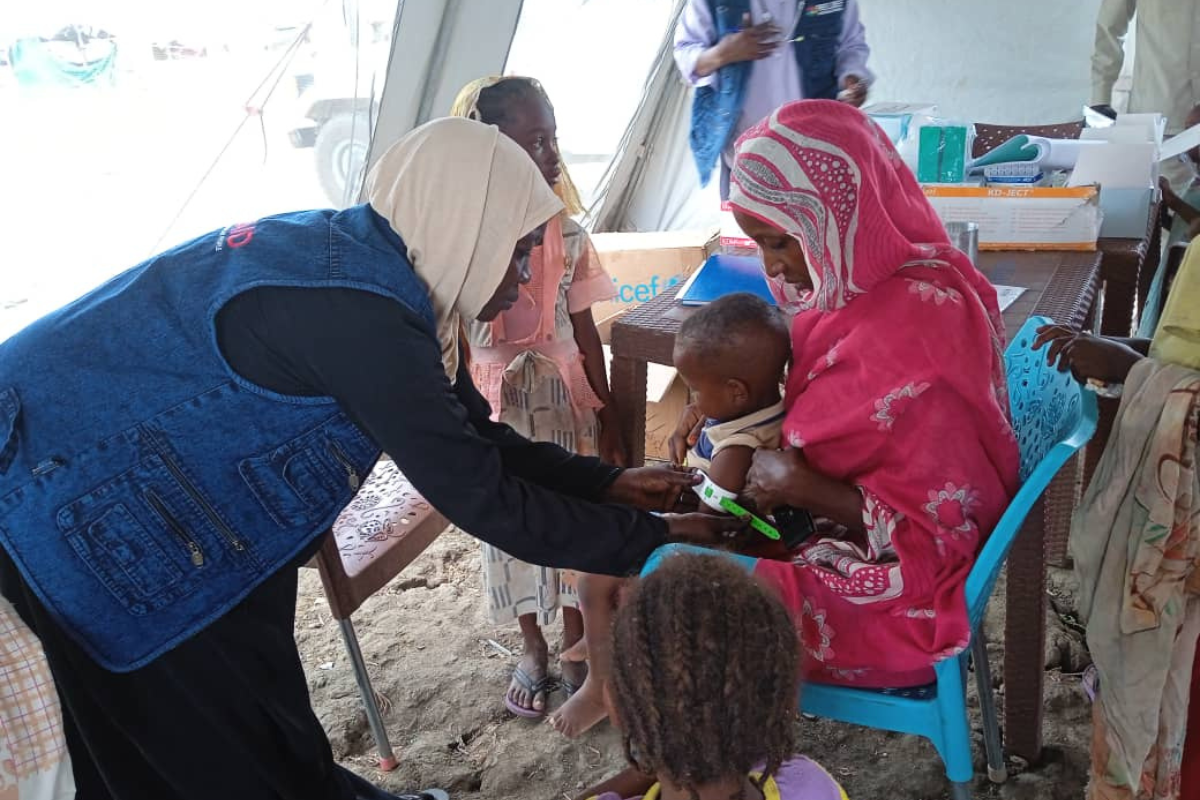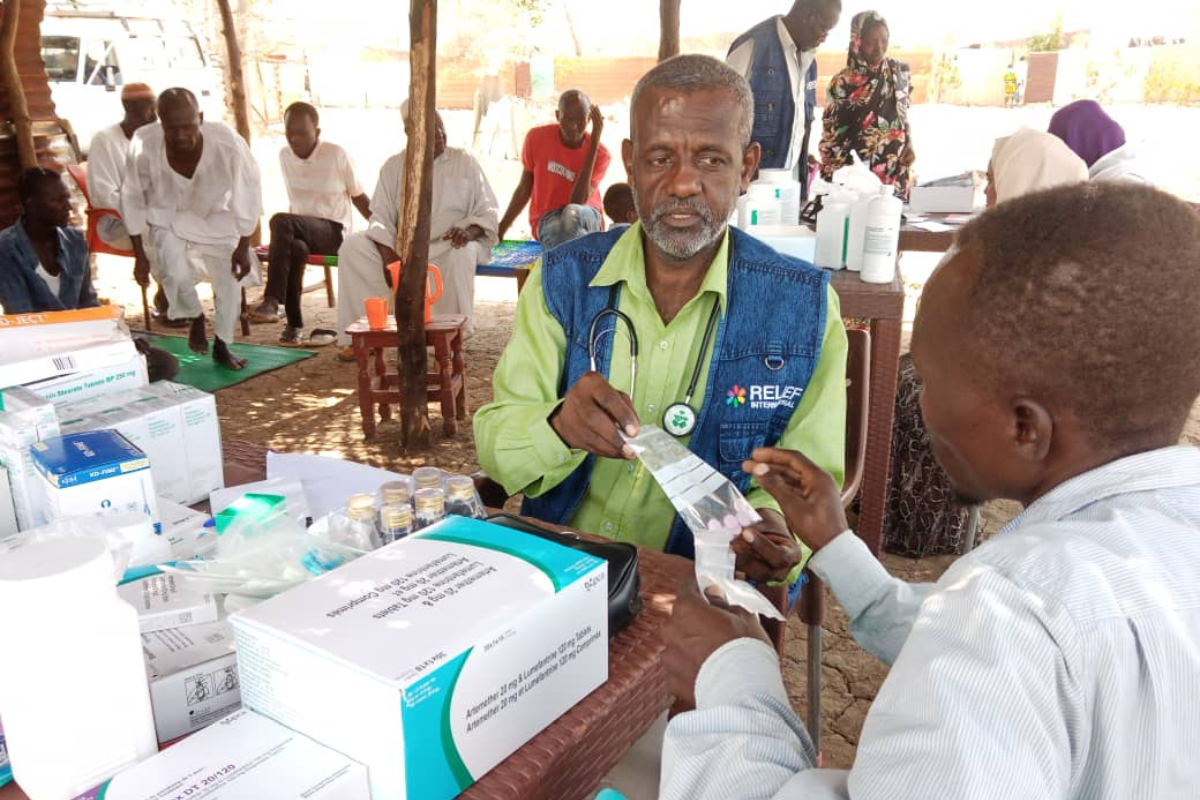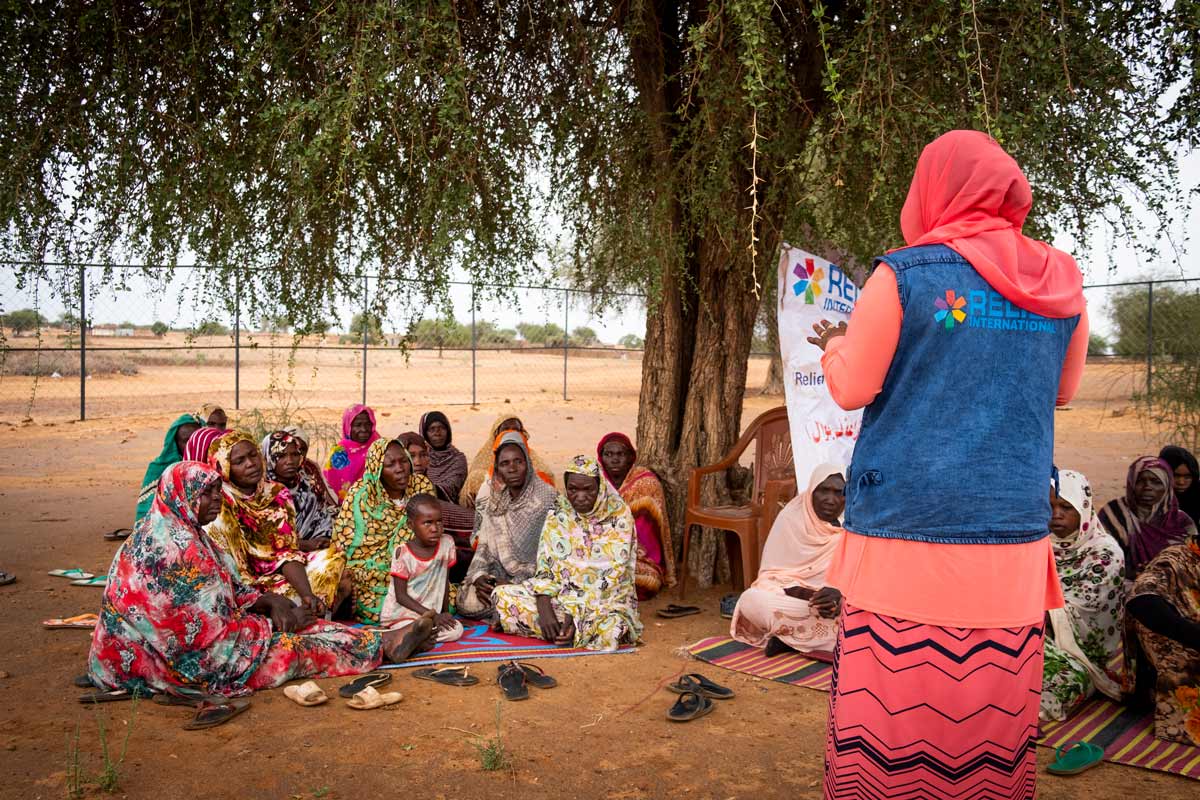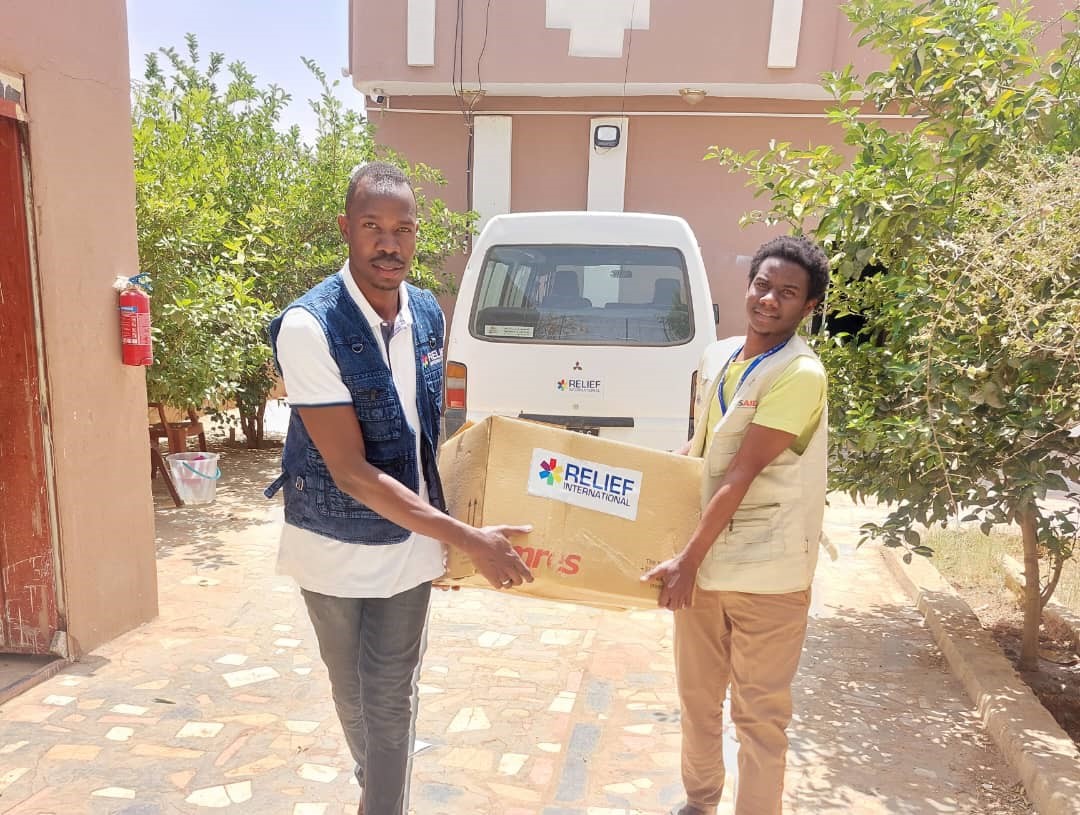As the devastating conflict in Sudan continues into a second month, Dr Mohammed Shatta, Relief International’s Health Manager in El-Fasher, North Darfur is hard at work.
“There is so much work but the staff here never stop working… This work is essential”
Since the conflict began, Dr Mohammed and RI’s staff in El-Fasher have been working around the clock to see patients impacted by the conflict at our 16 health in 4 localities in North Darfur facilities in the region.
Approximately 24.7 million people in Sudan have affected by the conflict in some way, and Dr Mohammed and his team see the impact up close on a daily basis.
The threat of violence continues to hang over large portions of the country and, as a result, RI staff continue to be inundated by patients injured in the conflict.
There is also a constant stream of patients with illnesses caused by the shortages in the country. The conflict itself has wreaked havoc on supply chains leading to shortages of food, medicine and even water.
“Before the conflict, we often treated illnesses seasonally,” says Dr Mohammed. “During the rainy season we would see more cases of diarrhea and malaria, while in the winter we would see more cases of respiratory infections.”
“Now, it is injuries from the conflict and diarrhea caused by inadequate or dirty water supplies.”
Dr Mohammed and his staff are doing everything they can to help these patients, and have been since the very first day of the conflict.

RI mobile clinic staff treating a family of patients who are unable to get to a static facility.
“In the first days of fighting, we did not have enough beds to put all the patients in…. we did minor surgeries on the ground,” says Dr Mohammed.
The conflict in Sudan started, seemingly, without warning on April 15.
“It was one of the most difficult days of my life” says Dr Mohammed.
“We did not have enough protective clothing… We did not have enough gauze… we did not have enough beds,” he recalls.
“The situation was catastrophic.”On the first day of the conflict alone, staff at the facility Dr Mohammed was working in saw more than 80 patients – most of whom were civilians caught up in the cross fire.
In the following days it was more of the same.
“We were not prepared for this number of patients or for injuries from conflict,” says Dr Mohammed.
But the team were forced to react, spending much of the first few days of the conflict working around the clock to treat as many people as they could.
In the first week of the conflict , RI staff at our facilities in El Fasher saw twice as many people as they normally would in a week.

RI mobile clinic staff treating patients who are unable to get to a static facility.
“We are seeing less patients injured by the conflict… but supplies and staffing are now a massive issue.”
As the conflict has continued, in some ways the situation has stabilized. RI health staff are reporting less patients injured by conflict, but they continue to see patients impacted by the conflict in other ways, and treating these patients is now far more difficult than before the conflict.
“We don’t have enough supplies in gauze, medicine and other essentials are all in low supply or are running out,” says Dr Mohammed.
“Also, many staff members fear for their safety if they leave their homes… They do not feel safe going to work.”
“In addition to this, transportation costs are incredibly high at the moment…. three times higher than normal, which makes getting supplies and transporting people even more difficult.”
“We have had enough fighting…. If this fighting ended tomorrow that would be fantastic.”
All of this makes Dr Mohammed and his staff’s jobs even more difficult.
They are doing everything they can to prepare for a protracted conflict, but ultimately it is unlikely to get easier until the conflict stops.
“We already have devastating illness outbreaks and rainy seasons in Sudan. We don’t need any other crises,” Dr Mohammed states strongly.
While the situation does not looks likely to improve anytime soon, Dr Mohammed remains optimistic.
“The future is unpredictable… hopefully the conflict will end!”

Donate Now
With a donation today, you can help us continue our essential work with communities in Sudan, and around the world!
Help us support these communities!
